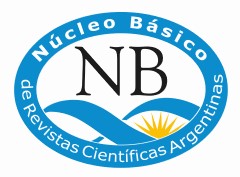EL HOMBRE ENFERMO: DEL REDUCCIONISMO POSITIVISTA A LA HUMANIZACIÓN DE LA FENOMENOLOGÍA. EL HUMANISMO DE LAS CIENCIAS MÉDICAS
Resumen
La concepción filosófica positivista afianzó los avances en la ciencia a través del precepto de que el conocimiento científico es aquello que se puede experimentar, revalidar y cuantificar. El actual paradigma biomédico se estructura en la corriente positivista, caracterizado por la búsqueda diagnóstica e investigativa desde la práctica de la medicina basada en evidencia. Este paradigma permitió avanzar hacia el desarrollo de la “metodología científica” demostrable y objetiva, cuyos resultados permitieran ser reproducibles y validados. Es decir, estableció la aplicación de etapas metodológicas para interpretar la naturaleza; sin embargo, aquello considerado ajeno al método era calificado como “no científico”. No caben dudas de que sus repercusiones en el ámbito médico han sido muy buenas en el marco del desarrollo del saber y de nuevas tecnologías para el abordaje de patologías. No obstante, un efecto colateral que se ha ponderado cuando la práctica médica es sesgada por el positivismo es que favorece la deshumanización del individuo. Esto se debe a que el auge en las ciencias naturales se ha caracterizado por el establecimiento de saberes estrictamente materiales, considerando que la objetividad de las ciencias se centra en la concepción del mundo como una unidad reducida al entendimiento de la razón y comprensible por el método científico.
Palabras clave. Positivismo, humanismo, medicina.
THE ILL MAN: FROM POSITIVIST REDUCTIONISM TO THE HUMANIZATION OFPHENOMENOLOGY. THE HUMANISM OF MEDICAL SCIENCES
ABSTRACT
The positivist philosophical conception strengthened science development through the precept that scientific knowledge may be experienced, revalued and quantified. The current biomedical paradigm is structured in the positivist conception, characterized by the diagnostic and investigative search for the practice of evidence-based medicine. This allowed us to move towards the development of demonstrable and objective knowledge in the framework of a “scientific methodology”, which yielded reproducible and validated results. That is, it established the application of methodological steps to interpret nature; however, knowledge which was not retrieved by the application of the scientific methodology was described as “non-scientific.” There is no doubt that its repercussions in the medical field have been beneficial for the development of knowledge and new technologies to manage pathologies. However, a side effect that has been weighed when medical practice is biased in positivism is that it favors the dehumanization of the individual. This is because the development in natural sciences has been characterized by the establishment of strictly material knowledge, considering that the objectivity of science is centered on the conception of the world as a unit reduced to the understanding of reason and understandable by the scientific method.
Key words. Positivism, humanism, medicine.












 Esta obra está bajo una
Esta obra está bajo una 